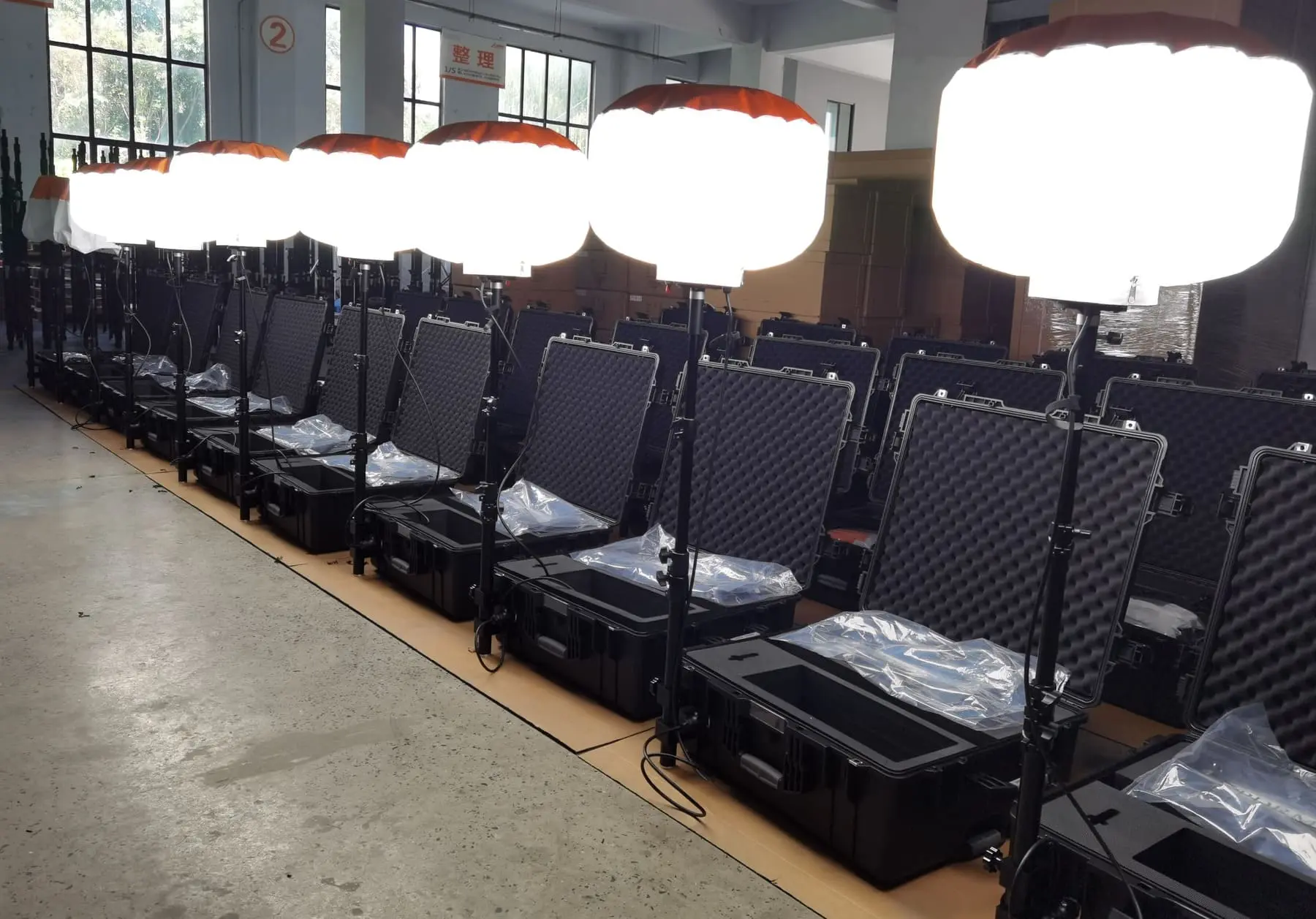Lighting balloons are built to last. But a little care can make them last even longer—and perform better every time.
Lighting balloons usually require no maintenance and have lifespans over 50,000 hours, but careful use, cleaning, and proper voltage can significantly extend their performance and durability.

I’ve seen well-used lighting balloons[^1] survive years of tough fieldwork just because someone took a few simple precautions. These aren’t fragile tools—but like any quality gear, how you treat them matters.
Are lighting balloons[^1] really maintenance-free[^2]?
Yes—and no. They’re low-maintenance, but not zero-care.
Lighting balloons are designed to be maintenance-free[^2] under normal conditions, but thoughtful handling, basic cleaning, and stable power input can extend their useful life far beyond the standard.

Moonlightia lighting balloons[^1], for example, are built for 50,000+ hours of use. That’s over five years of regular operation. But what determines whether they actually last that long depends on you. If you drop them during transport, leave dirt stuck to the diffuser, or expose them to unstable voltage[^3], they won’t last half as long.
Always handle lighting balloons[^1] gently when packing and transporting. Their fabric diffusers are tough, but repeated impact or pressure can wear down stitching or internal mounts. When the balloon surface gets dirty, wipe it down with clean water—no strong chemicals. Don’t try to open the lighting unit yourself. Even if it looks like a simple fix, only trained technicians should perform repairs using original parts. Moonlightia offers lifetime after-sales service[^4], so there’s no need to guess.
| Maintenance Area | What to Do |
|---|---|
| Transport | Avoid drops, strong impact |
| Cleaning | Wipe with clean water only |
| Power Supply | Use stable voltage[^3] to protect circuits |
| Repairs | Let professionals handle it |
| Parts Replacement | Use only original factory components[^5] |
Can you clean the balloon diffuser after use?
Yes—just do it gently and with water.
To clean your lighting balloon, use a soft cloth and clean water[^6]. Never use chemicals or soap, as they may damage the fabric or diffuser coating.
[^7]](http://moonlightia.com/wp-content/uploads/2023/07/img_3149-scaled.jpg)
Balloon surfaces are made of nylon or coated fabric. These materials spread light evenly and resist water or dust—but only to a point. After long use, especially outdoors, the balloon may gather dirt or even smoke particles. That buildup dims the light and heats the surface faster.
After every major job, or before long-term storage, take five minutes to wipe it down. Use a soft cloth or sponge and clean water. Don’t scrub. Don’t use any detergent. If there’s oil or smoke buildup, gently wipe several times instead of forcing it in one go. Let the surface dry naturally—never store it wet or folded in moisture. This alone can prevent mold, material breakdown, or heat-related yellowing[^8].
| Cleaning Step | What You Need To Know |
|---|---|
| Materials Used | Clean water, soft cloth |
| Frequency | After outdoor or dirty environments |
| Drying Method | Air dry before storage |
| What to Avoid | No detergent, no scrubbing |
What power precautions protect the lighting balloon most?
Surge or unstable power isn’t just bad—it can destroy your light from the inside.
Use a stable voltage[^3] source and avoid sudden power cuts. Lighting balloons contain sensitive internal components that can fail under electrical stress.

Inside every balloon light is a mix of power drivers, control boards, and LED modules. If your voltage spikes or sags too often—especially in outdoor or temporary setups—it can wear out these parts or cause sudden failure.
Always use a voltage-stable power source. If you're using a generator, ensure it's properly rated. Cheap or unstable generators can send a surge that burns out internal boards. Never plug into circuits with frequent interruptions or suspect grounding. And don't power-cycle your light quickly—wait a few seconds between off and on.
If the light flickers or fails to start, don’t try to fix it on the spot. Disconnect and call a technician. And don’t swap parts from other systems. Moonlightia supports all models with lifetime tech support—use it.
| Power Safety Rule | How It Helps |
|---|---|
| Stable Voltage Source | Prevents damage to internal drivers |
| No Quick Power Cycles | Protects sensitive startup components |
| Generator Matching | Avoids surges or frequency mismatch |
| Manufacturer Support | Ensures safe replacement and updates |
Conclusion
Lighting balloons may be low-maintenance, but they’re not no-maintenance. A little care in transport, cleaning, and power goes a long way—and Moonlightia is always here to help.
---
[^1]: Explore the advantages of lighting balloons for various applications and how they can enhance your lighting setup.
[^2]: Discover the truth behind the maintenance needs of lighting balloons and how to ensure their longevity.
[^3]: Learn about the significance of stable voltage in protecting your lighting equipment from damage.
[^4]: Explore the benefits of lifetime after-sales service and how it can support your lighting balloon needs.
[^5]: Understand the importance of using original parts for repairs to ensure the longevity of your lighting balloons.
[^6]: Discover the best materials to use for cleaning your lighting balloons without causing damage.
[^7]: Find out the best practices for cleaning your lighting balloon diffuser to maintain its performance.
[^8]: Find out what leads to heat-related yellowing and how to prevent it for your lighting balloons.



